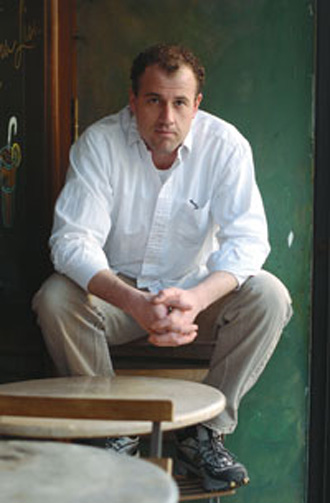 Memoirs: Does the truth matter?
Memoirs: Does the truth matter?
Q: Question for Kenyon Review editor David Lynn '76: Writer James Frey was castigated on Oprah for taking fictional liberties in his memoir, A Million Little Pieces --and he was just the latest in a series of supposed nonfiction writers disrobed as fabulists. Why are writers trying to pass off fiction as nonfiction? And if it's great writing, does it even matter?
A: The fact is that Frey wrote his book as a novel--that's how he conceived it; that's the guiding precept he used while writing it; that's how he tried, over and over again, to find a publisher. It was only belatedly that the idea of labeling the manuscript as memoir came to him. It was more of a marketing decision than a literary one. The real problem, it seems to me, is truth in advertising. If it had been published as a novel there would have been no fuss (and there probably wouldn't have been the financial success either).
All writers, to a greater or lesser degree, draw on their own experience in crafting fiction. It nourishes the illusion of reality that a writer strives to create. If readers had known that Frey had drawn on personal experiences in writing the novel, no one would have blinked an eye.
So why does it matter when the label "memoir" or "autobiography" is attached? I think it's because we happen to live in an age that doesn't permit much in the way of secrecy. When politicians lie, they're liable to be found out, sooner or later. When journalists pass off fabrications as stories that have been duly reported and checked, they too are likely to be exposed. When businesses employ creative accounting to pass off fraud, well, that too is likely to come to light, though not before many people are hurt.
The point is, the public is all too weary of such stories of deceit, and when an author gains enormous popularity (and many sympathetic tears) by sharing the painful triumphs of what turns out not to have been his life at all, one can't be too surprised that there's a backlash--though one can be a little appalled at the self-righteousness of the author's and publisher's defense.
But truth to tell, none of this troubles me greatly. After all, aren't we always trying to train Kenyon students to read "critically"? Certainly I want my students to treat texts with some skepticism, to stand back or to wrestle with them, not to accept claims of truth simply on the face of the claim itself.
Would we want students to accept Caesar's versions of his triumphs as unvarnished and reliable? St. Augustine certainly had a rhetorical point to his Confessions, and we should be wary of looking at the letter more than at the spirit of the document. Ben Franklin famously records the "errata" of his life that he seeks to correct, in part, through his own confessions in the Autobiography, but there again, we shouldn't imagine that much fiction doesn't go into the mix.
We need stories, we use stories to help us understand our experience, both personally and as part of a larger community of readers, as well as from generation to generation. But as soon as a writer--any writer--puts the rough hurly-burly of human experience into language, that experience is fundamentally transformed. Fiction becomes part of the very fabric of truth.
I'm particularly fascinated by those writers who seek to explore, openly and honestly, that gray, treacherous, marvelous border region where fiction and memoir and reportage blend together. W. G. Sebald, the remarkable German writer who lived for many years in England, is a prime exemplar, as is the art historian Simon Schama, in such books as Dead Certainties. And I think that Truman Capote got it right when he called In Cold Blood a "nonfiction novel."-He was suggesting that the great strength of novels is precisely that they can give us, through the transformative magic of narrative and imagination, deeper insights into the human truths that matter most.
David Lynn '76 is editor of the Kenyon Review, a professor of English, and an expert on the contemporary literary scene in America. His books include a novel, Wrestling with Gabriel, and two story collections, Fortune Telling, and, most recently, Year of Fire.
Do you have feedback on this page?
